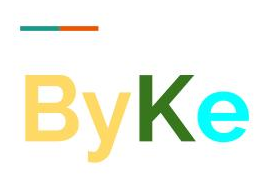Solar e-Cycles – Smart Communities Coalition Innovation Fund (SCCIF) Project (Kenya)
Who, What & Where
- Solar e-Cycles Kenya Ltd (TryKe)
- Smart Communities Coalition Innovation Fund (SCCIF) Project
- Kakuma Refugee Camp & Kalobeyei Settlement, Turkana County, Kenya
The Company
We design and assemble light electric tricycles – essentially, a solar-home system on wheels. The TryKe is our flagship product. It has a battery capacity of 1.6 kWh which allows it to provide affordable sustainable mobility and further productive use with the ability to carry 250 kg of payload over a 50-100 km range at maximum speeds of 25 kph. Being 100% solar-powered, our TryKe provides access to affordable physical mobility and demonstrable social mobility.
The Challenge
Unfortunately, many consider self-sufficiency for refugee communities improbable. Solar e-Cycles Kenya (TryKe) through the SCCIF project is resolute on disapproving of this stance. Having explored economic activities in Kakuma, TryKe settled on smallholder farming and rural mobility as areas ripe for evolution.
Rural small-holder farmers struggle to bring their produce to markets to sell due to an inefficient, expensive and fragmented transportation network. Traders experience the same challenges, spending up to 50% of profits on logistics and often, running at losses or near losses. TryKe is set to provide smallholder farmers and traders the benefits of electric mobility, especially in reduced operational expenses, when compared to conventional fuel-powered mobility solutions. TryKe will provide smallholder farmers with their own autonomy in mobility, thus empowering them to control their own logistics.
Secondly, TryKe will leverage the existing “boda boda” operator network, by leasing electric motorcycles to local boda boda operators who will serve the local farmers and traders through dedicated gig-matching. Lastly, TryKe will implement a robust asset monitoring system to provide predictive maintenance and consequently, even lower operational costs for the electric tricycle and motorcycle operators. Therefore, TryKe is resolute on economic empowerment, through the reduction of costs but also, increase of revenue and consequently, the profitability of business ventures within poor communities, especially, those in rural, off-grid environments.
Renewable Solution
TryKe is planning to deploy 15 electric motorcycles for both passenger and goods transport. The electric motorcycles are built from the popular T.V. Sundram Iyengar and Sons Ltd. (TVS) motorcycle parts. TVS is the prevalent model used in Kakuma. This way, the new technology will be more familiar to the users. Additionally, five e-tricycles will be deployed for goods transport.
| Max capacity of vehicle(s) |
|
| Decision on target market |
|
| Local community engagement |
|
| Energy requirements for individual vehicles |
42 kWh (daily demand) |
| Max operating distance per single charge |
|
| Battery type |
|
| Inhouse DRE capacity to power e-mobility solution | The project is supported by the mini-grid with 560 kWp by Renewvia Energy |
Project Financing and Costs
120,000 EUR (grant)
- Solar e-Cycles Kenya Ltd (TryKe)
- Smart Communities Coalition (USAID, EnDev and PowerAfrica) (financing partner)
- EnDev/GIZ (implementing partner)
- UNHCR (humanitarian organisation in charge of the refugees)
- Turkana County Government (collaboration, permits and licences)
- Kakuma Riders’ Group Association (beneficiary)
- Choro Farmers’ Cooperative (beneficiary)
- Kalobeyei Farmers’ Cooperative (beneficiary)
Project Outcome
While the project is still in the planning stages, TryKe hopes to achieve the following:
- Improved livelihoods by increasing profits and providing an alternative source of income
- Mitigate the effects of climate change by reducing the number of ICE motorcycles on the road
- Access to electricity to refugee households and businesses through its mini-grid
Key Recommendations
- Liaising with local stakeholders is vital
- Customer needs assessment is extremely important for the success of the project

